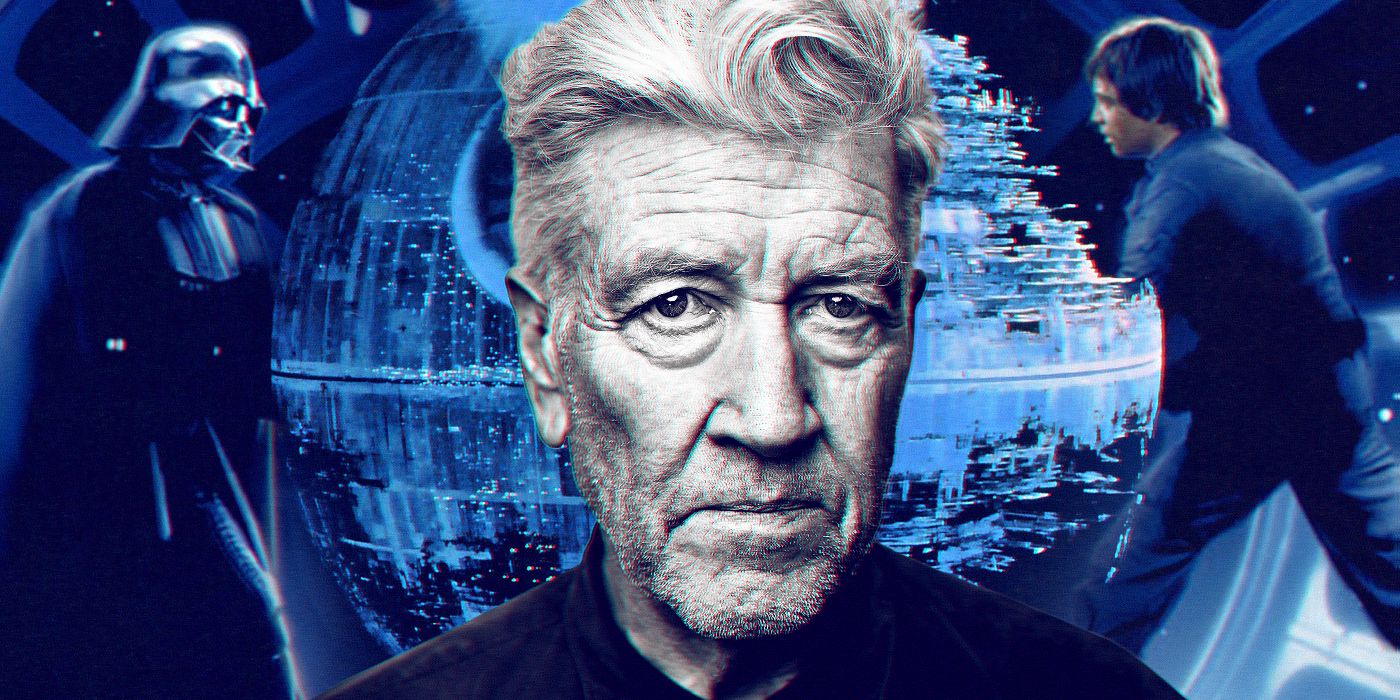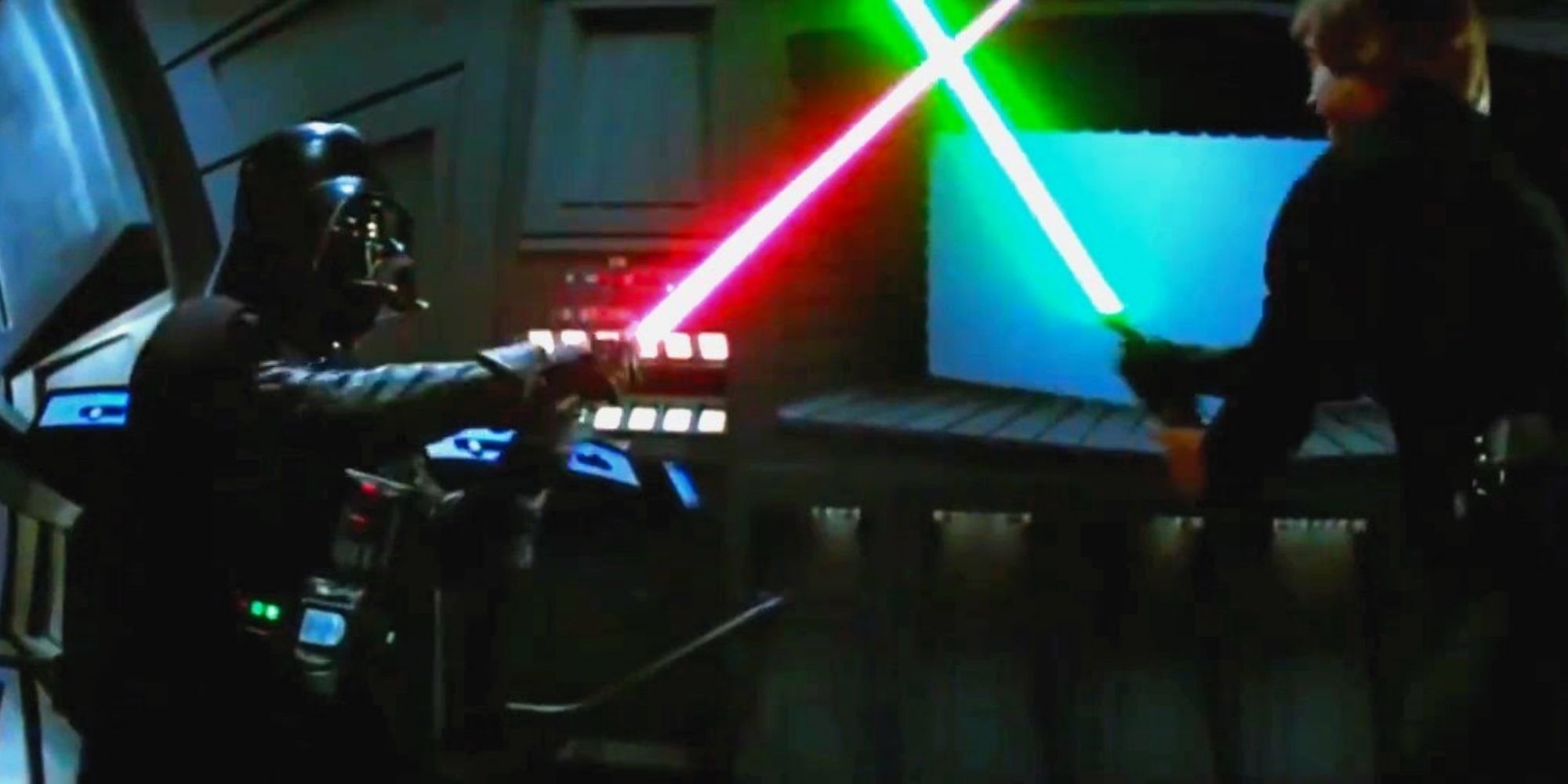The Disney era of Lucafilm has led to many potential Star Wars directors being announced, and then denied an opportunity to direct one of the franchise’s installments. Potential interesting auteurs that at one point were involved with a Star Wars project include Colin Trevorrow, Josh Trank, J.D. Dillard, Zack Snyder, Steven Daldry, James Mangold, and Matthew Vaughn among others, but Lucasfilm and Kathy Kennedy have been strict in greenlighting new films in the galaxy far, far away. Ironically, the chaos over who could potentially direct a Star Wars film was mirrored 40 years ago when a desperate George Lucas attempted to find a new director for Return of the Jedi. Strangely, one of the maverick filmmakers he approached was David Lynch.
Following the release of The Empire Strikes Back in 1980, Lucas needed a new director for the third installment in the original Star Wars trilogy, as Empire director Irvin Kershner did not intend to come back. Kershner had been a close friend of Lucas’ and his mentor during his studies at the University of Southern California, but he had only barely agreed to direct the first Star Wars sequel. Lucas had been so miserable during the production of A New Hope that he had sworn not to direct another installment, and so he had to find another respected filmmaker to entrust the franchise to. Lynch’s name came up, as he had just begun making the first few masterpieces in his long career of classics.
Theoretically, Lynch seems to be as far removed from the sci-fi adventures of Star Wars as anyone imaginable; Star Wars is a hero’s mythology inspired by Joseph Campbell and the Flash Gordon serials, and Lynch was attracted to more obscure and surrealist projects. However, Lynch had just found newfound success after he worked with Mel Brooks on The Elephant Man, which earned him passionate praise from the rest of the film industry and signified that he could make studio projects. Considering that he went on to make Dune, the possibility of a David Lynch Star Wars movie didn’t seem all that strange.
A Who's Who of Potential 'Return of the Jedi' Directors
Following Kershner’s refusal to direct Return of the Jedi, Lucas thought that another outside-the-box choice could help take on the project. His first instinct was to bring in his Indiana Jones co-creator and lifelong friend Steven Spielberg, but Lucas was not a member of the Director’s Guild Of America. The DGA had a longstanding animosity towards Lucas, as they disliked that the Star Wars films did not include credits before the title crawl. In response, they prevented Spielberg from officially directing the film.
Lynch’s name may have seemed like an odd one, but considering that Lucas also approached Paul Verhoeven and David Cronenberg, it wasn’t the craziest alternate reality that was possible. While Lynch is now renowned as one of the greatest directors of all-time, he was just beginning to grow his audience at the time of Return of the Jedi’s production. It’s possible that Lucas may have seen a lot of himself in Lynch. Lucas had gone from a tiny acclaimed indie feature (THX-1138) to an Oscar-nominated hit (American Graffiti), and Lynch had just done the same thing with Eraserhead and The Elephant Man. They’re both signature artists who cut their teeth in short films, and they both refused to be bullied by a studio system that attempted to diminish their stylistic impulses.
However, Lucas’ encounter wasn’t one that Lynch was personally looking forward to. Although he stated that he had “a tremendous amount of respect” for Lucas, he had “next to zero interest” in helming a Star Wars movie. As Lynch has amusingly recounted in interviews, he visited the production office to see the original costumes for Wookiees (as originally Return of the Jedi would have ended with a climax on Kashyyyk, not Endor). Lynch was overwhelmed about stepping into the universe and advised Lucas to personally direct it. However, Lynch learned that Lucas himself “didn’t love directing.” After Cronenberg also refused in order to do Videodrome and The Dead Zone, Lucas settled on the British filmmaker Richard Marquad after his 1981 film Eye of the Needle was a hit.
What Might a David Lynch-directed 'Return of the Jedi' Have Looked Like?
The possibility of a Lynchian version of the galaxy far, far away is a thought-provoking possibility. Considering Lynch’s infamous unhappiness during the production of Dune, in which he dealt with serious studio meddling and was not given final cut, he may have been warded off of science fiction forever. However, Lucas’ own experiences having his creative vision doubted might have given him more enthusiasm for letting Lynch do his own thing. Perhaps his Lucasfilm experience would have been a positive won, as Lynch clearly loves the idiosyncracies worldbuilding.
While Return of the Jedi is still a masterpiece on its own, Marquad himself was not necessarily an auteur. His previous work was on studio crowd pleasers that were simple and effective, and it’s likely that most of the stylistic flourishes in Return of the Jedi were the results of Lucas’ time on set and Lawrence Kasdan’s brilliant screenplay. Return of the Jedi is a satisfying entry in the trilogy that brings the story to a close, but as a film, it’s not as bold as the previous two installments. A darker, weirder Return of the Jedi (or Revenge of the Jedi as it was initially called) under Lynch might have launched the franchise into a completely different era; many of the early drafts of Star Wars films have wildly different implications for the saga.
It’s interesting to consider what Lynch would have done with the next chapter. A central theme to Return of the Jedi is balance between darkness and light, which is also something that is integral to Lynch’s work on Twin Peaks. Lynch uses the eternal goodness of Laura Palmer (Sheryl Lee) to make the darkness in his world seem more stark in comparison. And we learn later learn in Twin Peaks: The Return that evil can never truly be defeated -- it simply reforms under a new name. This is oddly something that is also true in the Star Wars franchise, as the dark side reemerges under different masters throughout the saga.
It seems unlikely that Lynch would be taking any offers from Disney to direct a Star Wars spinoff, as he has effectively retired from feature films and seems to be content doing his daily weather reports. Maybe in the same alternate universe that Alejandro Jodorowsky had directed Dune, David Lynch’s Revenge of the Jedi also exists.


